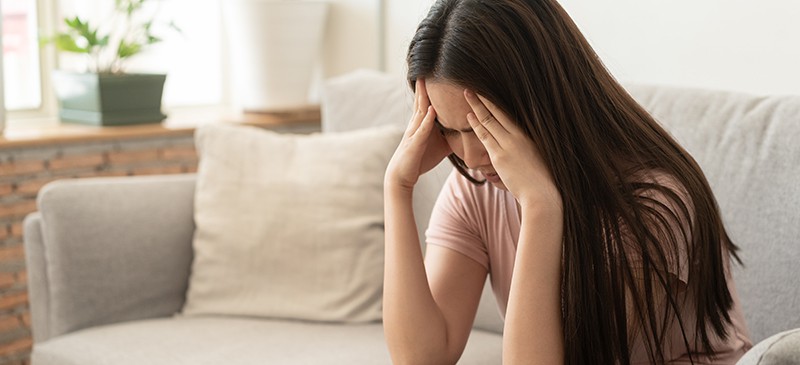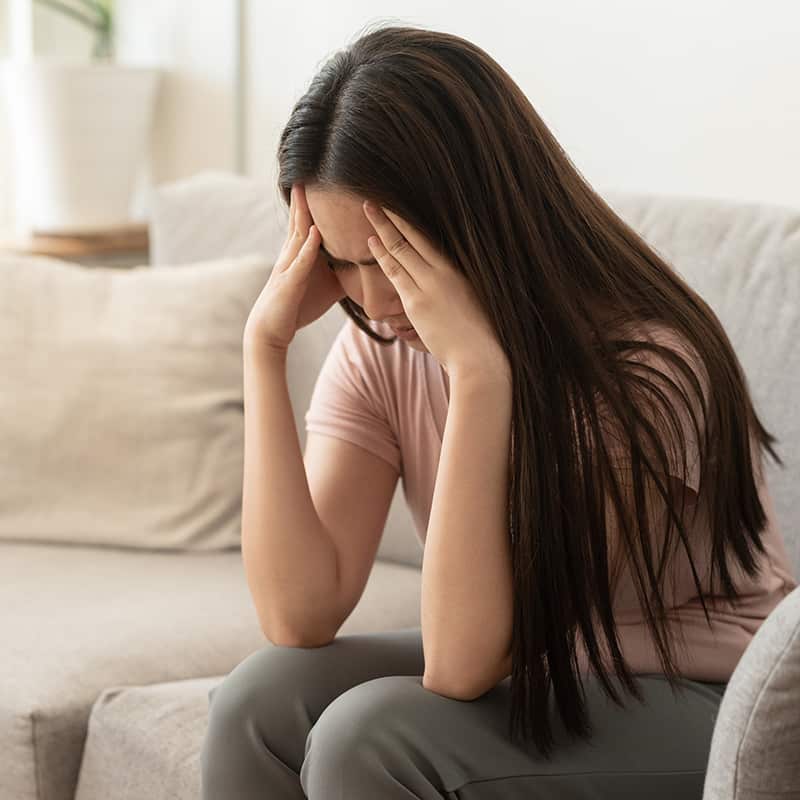This Dr. Axe content is medically reviewed or fact checked to ensure factually accurate information.
With strict editorial sourcing guidelines, we only link to academic research institutions, reputable media sites and, when research is available, medically peer-reviewed studies. Note that the numbers in parentheses (1, 2, etc.) are clickable links to these studies.
The information in our articles is NOT intended to replace a one-on-one relationship with a qualified health care professional and is not intended as medical advice.
This article is based on scientific evidence, written by experts and fact checked by our trained editorial staff. Note that the numbers in parentheses (1, 2, etc.) are clickable links to medically peer-reviewed studies.
Our team includes licensed nutritionists and dietitians, certified health education specialists, as well as certified strength and conditioning specialists, personal trainers and corrective exercise specialists. Our team aims to be not only thorough with its research, but also objective and unbiased.
The information in our articles is NOT intended to replace a one-on-one relationship with a qualified health care professional and is not intended as medical advice.
How to Combat (or Prevent) Caffeine Headaches
September 3, 2019

Caffeine, regardless of the source, can be both a headache trigger or headache inhibitor. Caffeine withdrawal headaches, however, occur when someone normally dependent on caffeine (like one or more cups of coffee or tea a day) decides to skip out their usual caffeine routine.
You’re most susceptible to experiencing caffeine headaches and other withdrawal effects if you regularly consume large quantities of caffeine.
Coffee is the caffeinated drink that’s responsible for the majority of caffeine headaches, and that makes sense, considering it’s one of the most highly consumed beverages in the world following water and tea. But you can also experience headaches if you quit using energy drinks, soda or some caffeine-containing medications.
Caffeine Withdrawal Headaches Symptoms
If a headache sets in after skipping caffeine but your symptoms start to subside after having some caffeine, this is a good indication that you’re experiencing caffeine withdrawal (also called “caffeine rebound”). Withdrawal symptoms typically begin within 12 to 24 hours after stopping caffeine.
Some of the most common caffeine withdrawal symptoms include:
- Headaches (usually felt behind the eyes and in the front of the head)
- Fatigue, lethargy and sleepiness
- Trouble concentrating
- Brain fog
- Low motivation to focus
- Irritability, anxiety and moodiness
- Constipation
- Stiffness and cramping
- Dizziness, clumsiness, lack of coordination
What’s happening in the body when someone’s going through caffeine withdrawal?
Caffeine impacts the way your brain and body work in a number of ways. The chemical caffeine is considered a stimulant of the methylxanthine class of psychoactive drugs. It affects the central nervous system (CNS) and has other effects including elevating your heart rate, altering blood flow, increasing alertness and decreasing fatigue.
One reason why quitting caffeine causes headaches is because of caffeine’s “vasoconstrictive” properties. Caffeine narrows the blood vessels that surround your brain, but when you stop using it, the blood vessels expand again, triggering pain since your body needs time to adjust.
Caffeine abstinence also produces changes in certain brain wave rhythms linked to increased fatigue. It also allows a chemical called adenosine to accumulate in the body. Adenosine is involved in energy metabolism and is responsible for making you feel sleepy.
Does caffeine ever help headaches?
According to the American Migraine Foundation, “Caffeine is often cited as a headache trigger, but for some people with migraines, a cup of coffee can offer some relief in the midst of an attack.” In fact, a number of popular over-the-counter headache medications contain caffeine as a key active ingredient.
Caffeine itself may temporarily help reduce headache pain in some people, but it doesn’t address the underlying causes of headaches, and therefore isn’t a good long-term solution.
Using meds that contain caffeine can also cause dependence, which means over time you’ll need more to feel the same relief.
How Long Do Caffeine Headaches Last?
Research gathered by the team at Caffeine Informer suggests that caffeine headaches typically last a few days to two weeks for most consumers.
However, among those that consume lots of caffeine very regularly — such as 1,000 milligrams or more daily — symptoms can linger for 2 months or more.
How Much Caffeine Is Too Much?
The effects of caffeine vary from person to person. Some people can periodically enjoy one or more sources of caffeine, and then skip out on caffeine other days, without experiencing any headaches. Others are more sensitive and susceptible to the effects of withdrawal. It’s still possible to develop negative symptoms when quitting caffeine even if you only consumed it for a few days in a row.
If you know that you tend to experience headaches easily and somewhat frequently, experts recommend either avoiding all caffeine or limiting your caffeine intake to one or two beverages daily.
This amount is roughly equivalent to 200 milligrams of caffeine, or about 2 regular-size cups of coffee.
When it comes to coffee consumption specifically, most research suggest that adults consume no more than about 3 - to 4 cups a day. This amount is considered a “moderate caffeine intake” and provides about 300 to 400 milligrams a day of caffeine. Other research suggests that more coffee, up to 5 or 6 cups, is even okay — as long as it doesn’t interfere with quality of life.
Below is a list of the most common sources of caffeine that can wind up contributing to withdrawal effects, according to the National Headache Foundation:
- Coffee: Amount of caffeine varies depending on the type and brand. One large McDonald’s brew contains about 100 to 200 milligrams of caffeine, while a venti at Starbucks contains roughly 415 milligrams. Weaker brews, instant coffee and espresso tend to have between 50 and 160 milligrams per small cup.
- Ice tea: 16-ounces, about 100 milligrams
- Coke, Pepsi, Dr. Pepper (or Diet Varieties): 12 ounces, about 45 milligrams
- Mountain Dew Soda: 12 ounces, 55 milligrams
- 10 Hour Energy Shot: 422 milligrams
- 5 Hour Energy Shot: 200 milligrams
- Most commercial energy drinks: 160 milligrams
- Average latte: 150 milligrams
- Lipton Black Tea: 55 milligrams
- Matcha green tea: 25 to 70 milligrams
- Bottled Frappuccino: 90 milligrams
- Iced espresso or cappuccino: 225 milligrams
- Decaf coffee: 10 to 25 milligrams
- Chai tea: 47 milligrams
- Black tea: 42 milligrams
- Green tea: 25 milligrams
- White, jasmine, oolong tea: 25 milligrams
- Herbal tea: 0 milligrams
How to Get Rid of a Caffeine Headache
It can be hard quitting caffeine; in fact, studies show that more than 90 percent of people with caffeine dependence struggle to quit due to side effects. That doesn’t mean it can’t be done, you just need to have patience and should expect your body to take time to adjust.
Tips for Cutting Back — or Weaning Off of — Caffeine:
- Don’t try to quit “cold turkey,” which can quickly trigger withdrawal effects. Reduce caffeine intake slowly, by 25 percent each week. Aim to cut yourself off of caffeine over the course of several weeks for the least withdrawal effects.
- Drink plenty of water throughout the day to prevent dehydration. Aim to drink at least eight, eight-ounce glasses of water per day.
- Be careful about sneaky sources of caffeine. Check ingredient labels of teas, chocolate, non-cola sodas and even decaf coffee.
- Take a pain medication if needed, but choose one that doesn’t contain caffeine, such as ibuprofen (Advil, Midol) or acetaminophen (Tylenol).
- Apply a drop of peppermint essential oil to your head where it hurts.
- Get plenty of sleep and rest. While your body adjusts, try to give yourself an hour of extra sleep per night.
- Eat a nutrient-dense diet and skip refined grains and too much sugar, since this will help to keep your energy up.
- Get moving. Exercising is a natural way to lift your energy and mood.
- Consider taking CBD oil to help you deal with discomfort, or applying a topical CBD balm.

 Alternatives
Alternatives
If you want to avoid caffeine headaches, one of the best things to do is nix your dependence on high-caffeine drinks and sources. Try these alternatives instead:
- Herbal tea — If you wish to avoid caffeine entirely, herbal teas are your best bet. Teas like peppermint, dandelion, decaf chai are great options. Herbal teas also offer benefits like improving digestion and creating a sense of calm.
- Grain/herbal coffee subs — Roasted grain beverages are commonly made with ingredients other than coffee beans because they’re intended to be better tolerated by caffeine-sensitive people. What kind of ingredients are used in popular coffee substitutes? These include: chicory, barley, rye, cocoa, wheat, molasses and other syrups/sugars. Toasted grain beverages are good options for people avoiding caffeine entirely. They taste similar to coffee and are low in sugar. Chicory root for example also provides fiber and has a smooth, creamy feeling in the mouth.
- Adaptogen herbal teas — These contain ingredients such as ashwagandha that are beneficial for balancing stress hormones, including cortisol. They can also support thyroid and adrenal function, leading to less fatigue and burnout.
- Hot cocoa/chocolate — Cocoa is high in antioxidants and contains a low amount of caffeine, making it suitable for those who can tolerate some in small amounts, or those weaning off of caffeine.
- Mushroom teas — Medicinal mushrooms like reishi, lion’s mane and cordyceps, much like adaptogens, can help you cope with stress. An added bonus? They reduce inflammation and possibly allow you to think more clearly.
- Yerba mate — This type of tea is also low in caffeine, similar to black tea. It’s popular among people looking for improved concentration/focus who don’t want to over-consume caffeine.
- Matcha green tea — If you’re okay with having some caffeine, matcha is a great choice since it’s nutrient-dense and high in antioxidants that can help protect brain health. It contains about one-third the amount of caffeine as coffee.
- White tea, rooibos tea and oolong tea — These teas contain about one-third the amount of caffeine compared to coffee, plus they offer benefits due to their antioxidant content.
Final Thoughts
- Can caffeine cause headaches? According to many studies and lots of anecdotal evidence, it certainly can. Withdrawal symptoms typically begin 12 to 24 hours after stopping caffeine.
- Here’s a summary of the connection between caffeine and headaches: abstaining from caffeine increases blood flow to the brain which triggers pain, while changes in brain function temporarily increase fatigue and moodiness.
- How long do caffeine headaches last? They can take several days to several weeks to go away completely. The more hooked you are, the longer it takes to resolve withdrawal effects (sometimes up to one to two months).
- To reduce headaches and other symptoms, wean yourself slowly over two weeks. Stay hydrated, try exercising, resist the temptation to fill up on sugar and get plenty of sleep.


